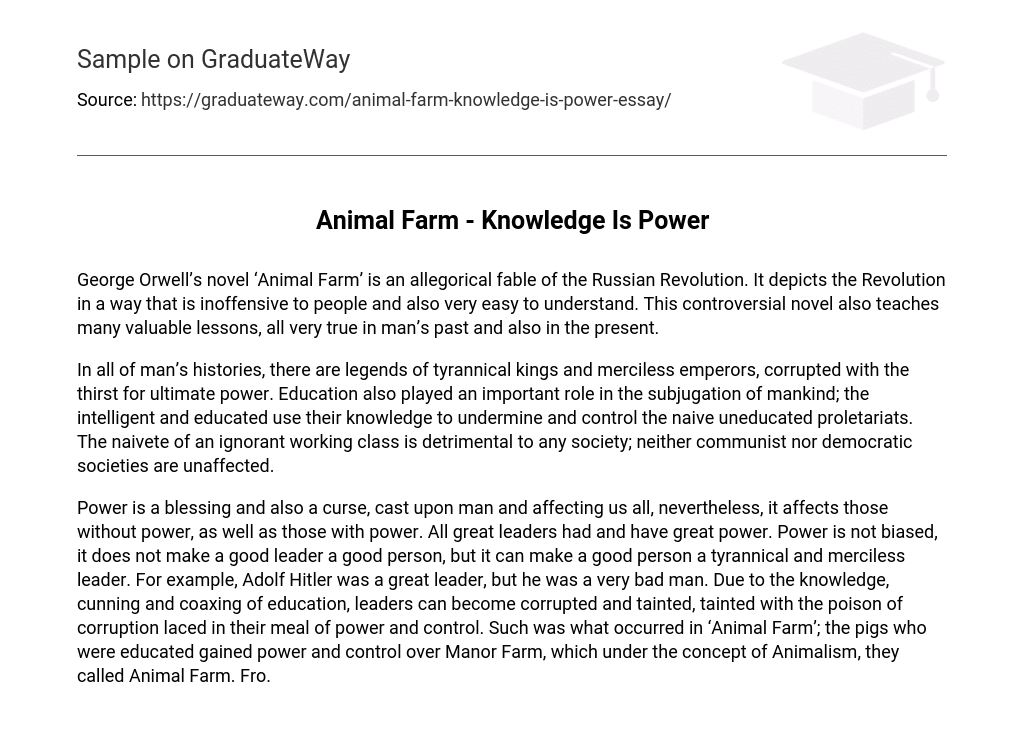George Orwell’s ‘Animal Farm’ is a fable that allegorically represents the Russian Revolution in a manner that is both non-offensive and highly comprehensible. This contentious novel imparts numerous valuable life lessons, which remain relevant to both the past and present.
Throughout human history, legends have depicted tyrannical kings and merciless emperors consumed by a thirst for supreme power. Education has also been instrumental in the domination of humanity, as the intelligent and educated have utilized their knowledge to manipulate and control the naive and uneducated working class. The innocence and lack of knowledge displayed by the proletariat can be detrimental to any society, regardless of whether it is communist or democratic.
Power, both a blessing and a curse, impacts everyone, regardless of whether they possess it or not. It has been observed that all great leaders possess great power. However, power itself does not discriminate; it does not inherently transform a moral leader into a virtuous person, but it can turn a good individual into an oppressive and merciless ruler. Adolf Hitler serves as a prime example of a powerful and charismatic leader who was morally corrupt. The pursuit of knowledge, combined with manipulation and persuasion, can corrupt leaders and contaminate them with the poison of corruption that taints their control and authority. This phenomenon is depicted in George Orwell’s novel ‘Animal Farm’, where the educated pigs gain control and power over Manor Farm, which they rename Animal Farm under the ideology of Animalism.





